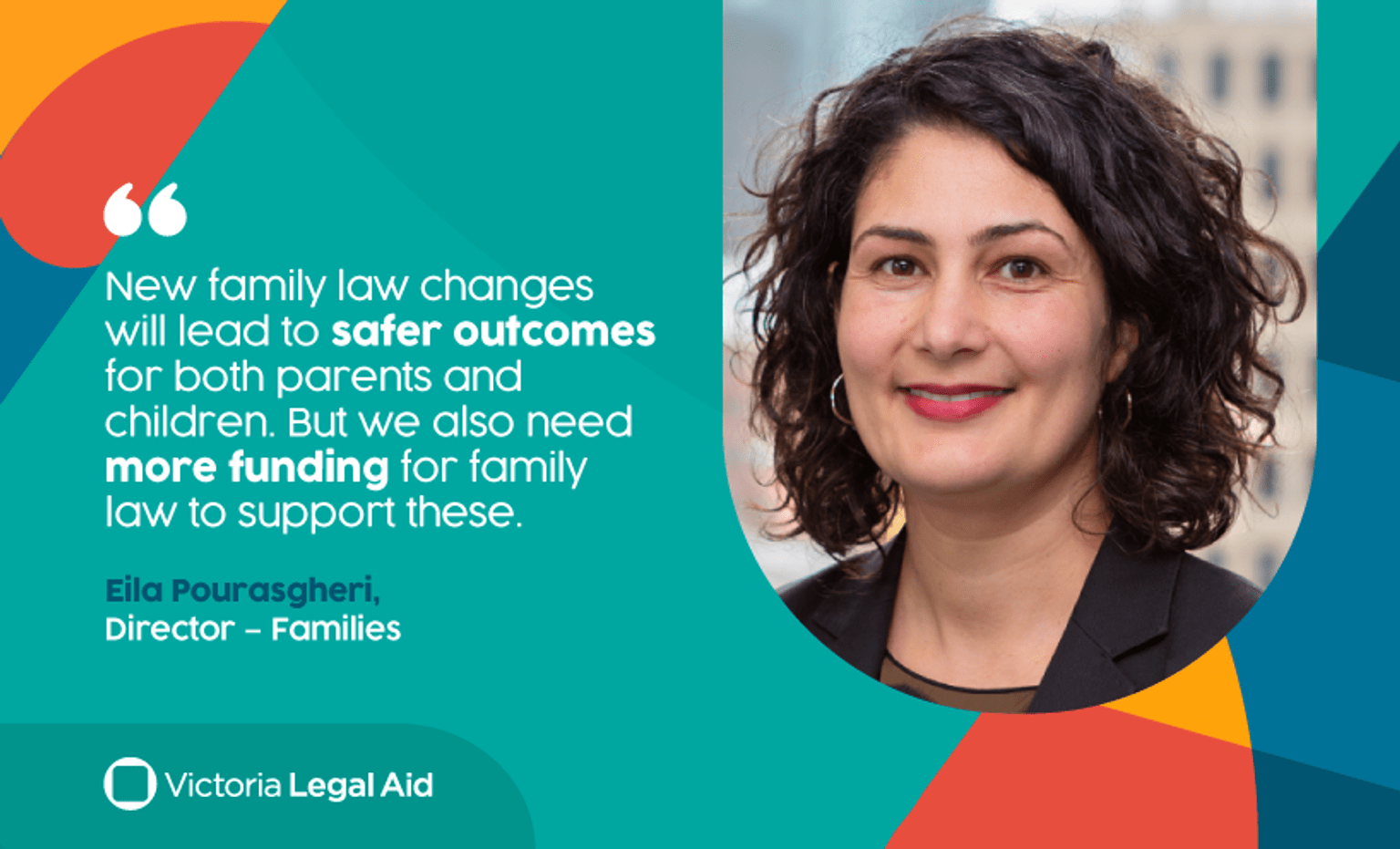- Published:
- Monday 6 May 2024 at 10:00 am

Changes coming into effect today will make the family law system simpler, safer and more accessible for separating families and their children.
Most importantly, the reforms are centred around the needs of children, as well as adult victim-survivors of violence, who are predominantly women.
‘The family law system plays a critical role in our community’s response to family violence and women’s safety,’ said Director Eila Pourasgheri from our Families team.
‘These changes will mean our client’s experiences of the system will be less confusing and traumatic, leading to safer outcomes for women and children.’
The Family Law Amendment Act 2023
The Family Law Amendment Act 2023 sets out significant changes including:
- what a court must consider when determining what is in the child’s best interests
- how separated parents make decisions about long-term issues for their children.
The factors for deciding what is in the best interests of children have also been simplified. This will make it easier for parents to understand legal advice.
The court will now consider six factors to decide what parenting arrangements will be in the best interests of the child, namely:
- the safety of the child and people who care for the child (including any history of family violence and family violence orders)
- the child’s views
- the developmental, psychological, emotional and cultural needs of the child
- the capacity of each person responsible for the child to provide for the child’s developmental, psychological, emotional and cultural needs
- the benefit to the child of having a relationship with their parents, and other people who are significant to them (e.g. grandparents and siblings)
- anything else that is relevant to the particular circumstances of the child.
How the changes will make a difference
‘The reforms work to prevent legal systems abuse and improve safety for children and victim-survivors of family violence,’ said Eila.
The new laws also remove confusion about the previously used term ‘equal-shared parental responsibility’. This term was often misinterpreted as equal-shared time. New guidance is now given for joint decision making.
‘We believe this change will facilitate a renewed focus on safety, risk and the best interests of children,’ said Eila.
‘We are also pleased to see expanded definitions of ‘relative’ and ‘family’ to include Aboriginal and Torres Strait Islander concepts of family.’
A new requirement has also been introduced for independent children’s lawyers to meet with the child and provide them with an opportunity to express a view.
‘We are pleased with this change as it will also help ensure children’s needs are prioritised,’ said Eila.
Calls for family law resourcing to ensure safety of women and children
Eila says limited funding for family law services across legal aid commissions, community legal centres and Aboriginal legal services is putting women and children at risk.
‘Limited funding for family law services means we are unable to meet the current demand,’ she said.
Recent modelling by National Legal Aid identified that an additional $317 million in annual funding is required to meet demand in family and civil law.
‘Without more legal assistance funding, we may not see the outcomes that the new family law reforms hope to achieve. And that means the safety of women and children victim-survivors of domestic violence will continue to be at risk,’ said Eila.
More information
Read more about our work toward family law reform.
The Australian Government Attorney-General’s Department has developed fact sheets about the Family Law Amendment Act 2023:
Updated

